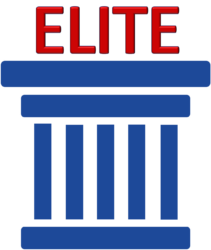Below are insights on each question on our Leadership Program Assessment. If you have additional questions after reviewing these insights, please contact us.
1. Is your leadership training process-based versus skills-based, i.e., developing leadership ‘skills’?
Focusing primarily or solely on leadership as a skill to be learned will result in limited leadership growth. Leaders and aspiring leaders need to learn a practice and continuously-improve process to be prepared for the everyday challenges they may face.
2. Is your leadership training implemented as part of a 12-month or longer leadership improvement journey?
Leadership improvement will not by attained by taking 1 or 2 classes, but it requires regular feedback over an extended time to monitor leadership growth, answer any questions the participant might have as well as making sure the participant has properly implemented the concepts taught.
3. Is the initial outcome of the leadership training a personalized leadership plan for each individual in the program?
Leadership must be personalized to the individual. No two leaders lead in the same manner. They must develop their personal leadership style and approach based on what works best for them and feels most comfortable.
4. Is regular self-reflection and journaling an integral part of the leadership program?
Self-reflection helps leaders better understand who they are, and journaling helps them document and learn from the leadership encounters they have experienced.
5. Can leadership improvement be objectively measured and are participants reassessed at regular intervals throughout the program?
Measuring leadership improvement is essential for an organization to determine if the program they have implemented is effective and the measure their return on investment. Participants in the leadership program should be measured before they enter the program to establish a baseline and at regular intervals throughout the program to chart progress.
6. Is leadership considered a lifelong journey where participants are provided and encouraged to study new leadership materials beyond the initial classwork?
Leadership is a lifelong journey. There is always something new a leader can learn and incorporate into their personal leadership strategy. The moment a leader believes they know everything about leadership is the moment their value as a leader declines.
7. Is a feedback loop which includes regular coaching and mentoring an integral part of the leadership program?
Leaders need someone to hold them accountable for their leadership improvement goals. Regular coaching and mentoring accomplish this by helping the leader see things they might not have seen and providing insight as to how prior leadership encounters could be addressed in the future.
8. Does the ongoing coaching evaluate areas of individual shortcomings with a plan to achieve improvement?
Leadership coaching needs to result in identifying the leader’s performance shortcomings as well as a plan for how they will overcome them in the future. The coach should hold the leader accountable for the plan they have created.
9. Is the coaching and mentoring performed by external parties?
If the coaching and mentoring is performed internally, leaders may not fully share their thoughts and concerns for fear that they might be used against them at some future date in their career.
10. Are the participants encouraged to engage in a long-term personal coaching and mentoring relationship outside of the organization’s leadership program?
Coaching and mentoring should not be just for the life of the leadership program but should continue throughout the career of the leader. Therefore, it is highly recommended that leaders seek out and continue a long-term personal relationship at the conclusion of the program.


